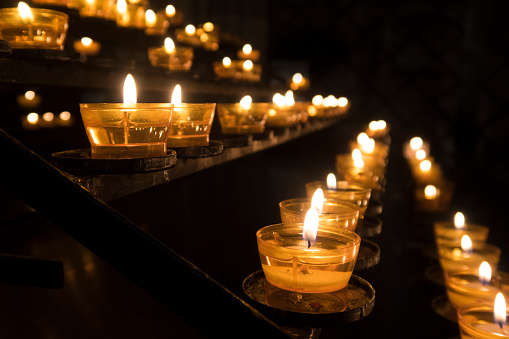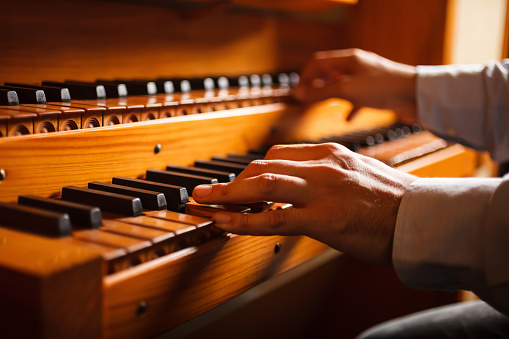Of all the Christian denominations in Australia, one of the oldest and largest is the Catholic Church, making up around 23% of Australia’s population.
Whether you are Catholic or not, it’s good to be aware of how the largest religious denomination in the world practises its faith in various ceremonies including farewells and memorials.
Sydney funeral director Peter Giarratano has over 17 years’ experience creating funerals and memorials with culturally diverse communities, including Anglo and Italian Catholic communities, and shares his insight into Catholic funeral traditions.
What are the origins of Catholic funeral traditions?
“When looking at Catholic funerals, the Early Church formed the basis of traditional rituals and practices,” Peter explains.
“These practices can be seen in the vigil service, the funeral mass, and the rite of committal.
“Some Catholics will have a memorial one month after someone has passed away, and usually a memorial will also take place at the twelve-month anniversary of their loved one’s passing,” he adds.
What happens in a Catholic vigil service?
“The vigil service is led by a priest, and consists of prayers including the rosary, scripture readings, and eulogies delivered by family members.
“The service is usually held at a church, a funeral home, or the family home.
“Some families will light candles as an act of remembrance and to pray for the deceased,” he adds.
The funeral mass
“The Catholic funeral mass, which is also known as the Requiem mass, is a time to not only farewell loved ones, but also to contemplate the crucifixion of Jesus and the resurrection.
“The funeral mass begins with an entrance song, followed by prayers and readings, and then the offertory procession takes place.
“The priest then leads the procession out of the church during the closing song,” Peter says.
“In most Anglo Catholic funeral masses, the music is usually delivered by an organist or a church choir.
“Some of the most common hymns sung at a funeral mass include Abide With Me, Amazing Grace, Ave Maria in both Italian and English, and How Great Thou Art”, he adds.
What is a rite of committal?
“After the ceremony, the rite of committal takes place at either a cemetery or a crematorium and consists of intercessions and prayers.
“The Catholic Church permits families to choose either burial or cremation, however, cremated remains must be placed at a consecrated site, and are not to be scattered or stored in a home” he explains.
Catholic funeral etiquette
“The common dress attire at traditional funerals are formal, dark coloured suits, pants, and modest dresses.
“Acceptable gifts include sympathy cards and floral bouquets, or a donation to the church or the family’s chosen charity”, Peter says.
Common Bible verses at a Catholic funeral
Psalms 23:1-4
“The LORD is my shepherd; I shall not want. / In verdant pastures he gives me repose; / Beside restful waters he leads me; / He refreshes my soul. / He guides me in right paths / for his name sake. / Even though I walk in the dark valley / I fear no evil; for you are at my side / With your rod and your staff / that give me courage.”
1 Corinthians 15:52
“For the trumpet will sound, the dead will be raised incorruptible, and we shall be changed.”
2 Corinthians 4:14-15
“Brothers and sisters: Knowing that the One who raised the Lord Jesus will raise us also with Jesus and place us with you in his presence. Everything indeed is for you, so that the grace bestowed in abundance on more and more people may cause the thanksgiving to overflow for the glory of God.”
The information on this website is for general information only and are not (and nor are they intended to be) a substitute for professional medical or mental health advice, nor is it used for diagnosis and treatment. You, or anyone you are concerned about, are encouraged to seek professional medical or mental health advice and treatment from suitably qualified medical and clinical practitioners and providers.
Our full terms and conditions are available here
If you are in crisis or think you may have an emergency, immediately call Emergency 000. If you're having thoughts of self-harm or harm to others call Lifeline on 13 11 23 to talk to a skilled, trained counsellor. If you are located outside Australia, contact your local emergency line directly.






